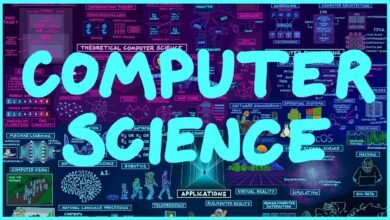How AI is Transforming Project Management in 2025
Discover how AI is revolutionizing project management in 2025 with automation, analytics, and smarter workflows.

Artificial Intelligence (AI) is no longer just a buzzword in tech circles—it’s a game-changing force reshaping how industries operate. Among the sectors seeing rapid transformation is project management. As workflows become more complex and timelines tighter, AI is stepping in as a powerful ally for project managers worldwide. In this article, we’ll explore how AI is revolutionizing project management, the benefits it brings, and what the future holds.
From Gantt Charts to Algorithms: A Shift in Project Management
Traditional project management methods have served their purpose for decades. Tools like Gantt charts, Kanban boards, and spreadsheets helped teams track progress and assign tasks. However, these tools often require manual input, are susceptible to human error, and lack predictive capabilities.
AI introduces intelligent automation, predictive analytics, and natural language processing into the world of project management. It can analyze vast datasets in seconds, flag risks before they derail a timeline, and even suggest how to optimize resources. With AI, project managers aren’t just reacting—they’re anticipating.
Global Momentum: AI Is Gaining Ground
The growth of AI in the project management sector is supported by striking statistics. According to a MarketsandMarkets report, the global AI in project management market is expected to rise from $2.5 billion in 2023 to $5.7 billion by 2028, reflecting a compound annual growth rate (CAGR) of 17.3%. This acceleration highlights both demand and confidence in AI’s ability to deliver measurable project outcomes.
A 2024 survey by McKinsey & Company also revealed that 78% of global businesses now use AI in at least one business unit—up from 55% in 2022. As adoption becomes more mainstream, it’s clear that AI is no longer experimental—it’s essential.
5 Game-Changing Benefits of AI in Project Management
Let’s break down the core advantages AI offers project management teams:
1. Smarter Resource Allocation
AI tools can automatically track workloads, availability, and deadlines across teams. This makes it easier to assign the right people to the right tasks, minimizing burnout and improving efficiency.
2. Accurate Risk Prediction
By learning from historical data, AI algorithms can flag potential project bottlenecks—missed deadlines, scope creep, or budget overruns—before they occur. This proactive approach helps managers make data-driven decisions.
3. Automated Reporting
No more tedious report creation. AI tools can automatically generate dashboards and weekly updates based on real-time project data, saving hours of manual work.
4. Real-Time Collaboration
AI-powered platforms can act as virtual project assistants, summarizing meeting notes, scheduling check-ins, and updating task statuses. They facilitate seamless communication, especially in remote or global teams.
5. Enhanced Decision-Making
With access to insights derived from project data, project leaders can make more confident strategic choices—whether that means adjusting timelines, reallocating budgets, or pivoting project scope.
Real-World Use Cases Across Industries
Across sectors, companies are embracing AI to streamline their project delivery:
- Tech companies like Atlassian have introduced AI features in tools such as Jira and Confluence to automate repetitive tasks. Their AI assistant, helps team members save up to 20 hours per month by suggesting actions and summarizing project documentation.
- Construction firms are using drones and AI to monitor site progress, compare it with timelines, and make real-time adjustments.
- Marketing agencies apply AI to manage campaign deadlines, assign creative tasks, and forecast performance—all without micromanagement.
These examples show how adaptable AI can be, regardless of the industry or project type.
Challenges You Shouldn’t Ignore
AI is powerful, but its integration into project management comes with a few hurdles:
- Data Quality: AI is only as good as the data it’s trained on. Inconsistent or incomplete data can skew predictions and lead to poor decision-making.
- Cost of Implementation: Some AI tools require significant upfront investment, which can be a barrier for small businesses.
- Resistance to Change: Project managers accustomed to traditional methods may be hesitant to trust algorithms or cede control to automation.
- Security and Privacy: Project data often contains sensitive information. Ensuring AI systems comply with data protection regulations like GDPR is crucial.
Organizations must plan carefully to mitigate these challenges and make the most of AI’s capabilities.
What the Future Holds
Looking ahead, the role of AI in project management will only grow. We can expect:
- Hyper-Personalized Tools: AI will increasingly tailor insights to individual team members based on work patterns, preferences, and productivity.
- Voice-Powered PM Assistants: Think Alexa for project teams. These assistants will help with scheduling, task updates, and project briefings via voice commands.
- Greater Integration: AI will be more deeply embedded in mainstream project management platforms, making adoption seamless—even for non-tech-savvy users.
By 2030, AI will likely be involved in nearly every stage of the project lifecycle, from planning and execution to post-mortem analysis.
Conclusion
AI is fundamentally changing the project management landscape. It’s helping teams work smarter, deliver faster, and reduce risk—turning reactive processes into predictive and proactive strategies. While challenges remain, the opportunities far outweigh the drawbacks for organizations willing to embrace this shift.
As we move deeper into this decade, one thing is clear AI in project management isn’t a trend. It’s a transformation.










